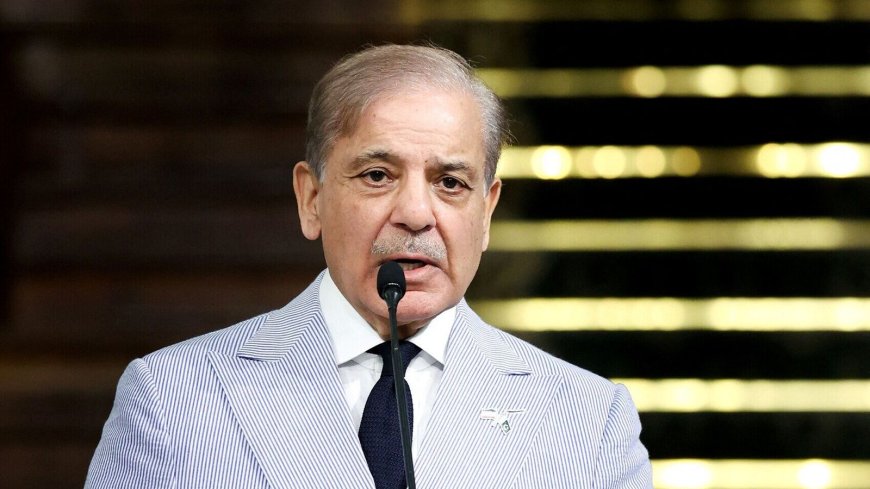‘Pakistan ready to talk to India, but if they choose…’: In Iran, Shehbaz Sharif’s tone shifts, adds ‘aggressor’ rider
Pakistan's Prime Minister Shehbaz Sharif has expressed a willingness to engage in peace talks with India during his visit to Iran. He emphasized dialogue to resolve disputes and highlighted the potential benefits of improved bilateral relations for regional peace.

‘Pakistan ready to talk to India, but if they choose…’: In Iran, Shehbaz Sharif’s tone shifts, adds ‘aggressor’ rider
Breaking News, Daily Updates & Exclusive Stories - dharmyuddh
In an intriguing turn of diplomatic events, Pakistan's Prime Minister Shehbaz Sharif has expressed a readiness to engage in peace talks with India during his recent visit to Iran. This statement marks a noteworthy shift in tone, raising questions about the potential for renewed dialogue between the two neighboring countries.
Shehbaz Sharif's Call for Dialogue
During a press conference in Iran, Prime Minister Shehbaz Sharif emphasized the importance of dialogue in resolving long-standing disputes between India and Pakistan. He stressed that improved bilateral relations could lead to enhanced regional stability, economic cooperation, and mutual benefits for both nations. This comes at a time when the relationship between the two countries has been marred by tension and hostility, particularly over issues such as Kashmir.
The 'Aggressor' Rider
However, it’s noteworthy that Prime Minister Sharif also included a caveat in his remarks, describing India as the "aggressor." This characterization adds a layer of complexity to his overture, indicating that while he is open to talks, there are still significant grievances that Pakistan holds against its neighbor. The inclusion of this term could imply that any dialogue would need to address perceived injustices and aggressions faced by Pakistan, particularly concerning territorial disputes and alleged human rights violations.
Regional Dynamics and International Implications
This shift in Shehbaz Sharif's tone could also have broader implications for regional dynamics and international relations. India and Pakistan have historically been at odds, and peace talks have often centered around contentious issues like Kashmir. The international community, particularly neighboring countries and major powers, will be keenly observing these developments, as stable bilateral relations could lead to increased trade, cooperation on counter-terrorism, and collaborative efforts towards regional security.
The Need for Constructive Engagement
Experts believe that for any dialogue to be meaningful, both nations would need to approach negotiations with a commitment to constructive engagement and a willingness to make concessions. Given the complexities involved, this would be a challenging task. The deep-seated mistrust and the historical legacy of conflict make genuine dialogue difficult, yet not impossible. Analysts urge both governments to prioritize mutual interests and adopt a forward-looking approach for the benefit of their people.
Conclusion: A Path Forward?
In conclusion, while Prime Minister Shehbaz Sharif's willingness to talk leaves the door open for dialogue, the added "aggressor" label signifies that Pakistan is seeking more than just discussions; it wants meaningful engagements that address key issues. As both nations grapple with the possibility of renewed talks, the focus will need to shift toward creating a conducive environment for peace. The world is watching, and the path forward will depend on the actions both governments choose to take in the coming days.
For more updates, visit dharmyuddh.com







